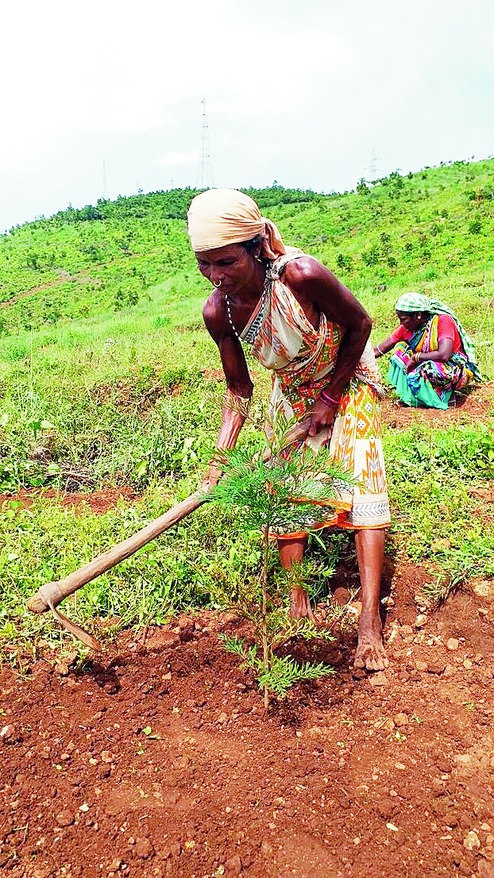Koraput (Odisha) :
The district administration has formulated a 10-year project to popularise coffee plantation in the district.
It aims to provide sustainable income to tribal farmers and make the district a coffee hub.

The project will undertake coffee plantation over 46,500 hectares of government land in next 10 years. It is being implemented from the current fiscal.
“Even though the climatic condition of Koraput is conducive for coffee plantation, it has, however, remained neglected for various reasons. Hence, an initiative has been taken to popularise coffee plantation among the tribal farmers and to make the district a hub for coffee, other spices crop and allied plantations,” said district collector Anupam Saha.
“After planting coffee seeds, the areas will be distributed among the tribal beneficiaries to be identified through gram sabhas. The plantation area to be distributed among each beneficiary will be decided later,” he said.
The administration has also formed a coffee development trust with the district collector as its head, and accordingly, the trust has decided to take up advance shade planting of silver oak trees on 1,026 hectares in 2017-18.
“Till now, we have taken up shade plantation on around 1,250 acres and more than 25 lakhs of shade plants seedlings have been raised at 15 locations of the district,” said Bhabani Shankar Kalo, deputy director of the trust stationed in Koraput.
He said that nearly after two years of shade plantations, coffee saplings would be planted as the coffee plant required filter sun rays for its growth. “From the fifth year, the beneficiaries could be able to harvest coffee. In between, they can earn by inter-cropping of spices such as black-pepper,” said Kalo. “The life span of a coffee plant is around 60 years and requires minimum maintenance.”
Coffee plantation had first been introduced in Koraput by erstwhile king of Jeypore in 1930. However, after abolition of feudatory estates in 1951, the state government through the soil conservation department had undertaken coffee plantation as a measure to prevent siltation in the Machkund basin of the district in 1958.
Though the coffee estates, developed by the state government, had been maintained till 1990, it was neglected subsequently confining the coffee plantation to a few private parties.
“It’s a welcome move by the administration. We see how farmers are reaping benefits from coffee plantations in the bordering Araku valley of Andhra. Hope, here also we will be benefitted,” said Hare Krushna Majhi, a tribal farmer of Pogra village under Nandapur block.
According to government survey, at least 1.45 lakh hectares under Koraput, Semiliguda, Nandapur, Pottangi, Dasmanthpur, Lamataput and Lakshmipur blocks of the district are ideal for coffee plantation. But at present, only 1,467 hectares is under coffee cultivation.
source: http://www.telegraphindia.com / The Telegraph, Calcutta,India / Home> Odisha / by Telegraph Correspondent / December 14th, 2017

